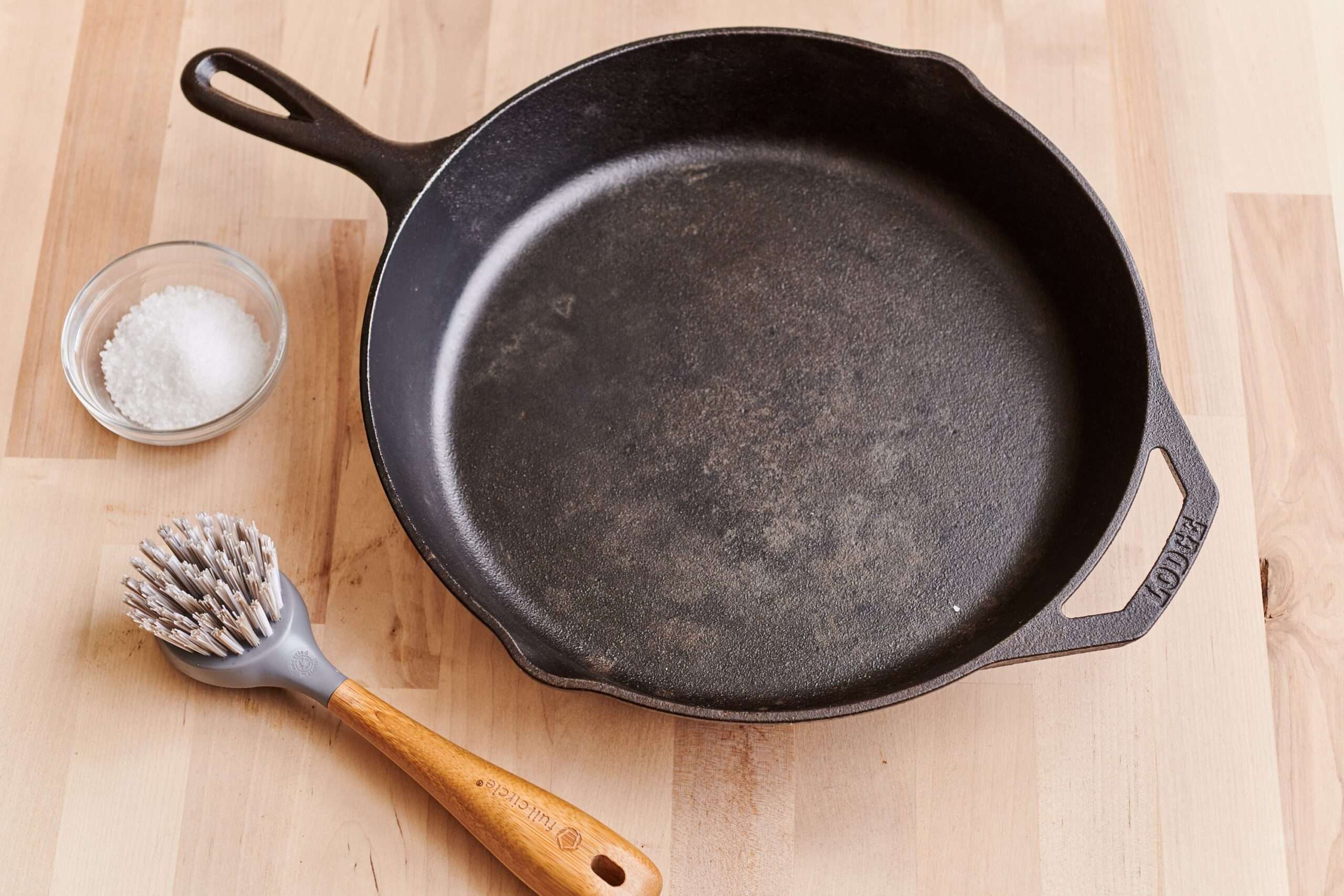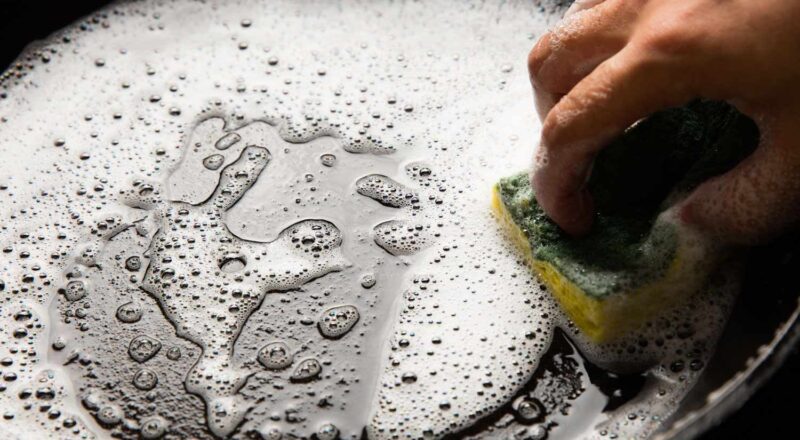A cast iron skillet is a cherished tool in any kitchen, admired for its heat retention, even cooking, and durability. However, one common challenge is keeping it from rusting. Ensuring your cast iron remains rust-free is vital for its longevity and performance. Here’s how health-conscious individuals can maintain their cast iron.

Understanding Cast Iron and Rust
Cast iron cookware is made from iron and a small amount of carbon, making it highly durable. However, its composition also makes it prone to rust when exposed to moisture. So, understanding the properties and care requirements of cast iron is the first step to keeping it rust-free.

Why Does Cast Iron Rust?
Cast iron rusts due to its high iron content, which reacts with water and oxygen to form iron oxide, commonly known as rust. This can happen if the cookware is left wet, exposed to humidity, or not properly seasoned.
The Role of Seasoning
Seasoning is a protective layer of polymerized oil that is baked onto the cast iron surface. This not only prevents rust but also creates a natural, non-stick surface. Regularly seasoning your cast iron is crucial in preventing rust.

Steps to Season Your Cast Iron
- Clean the skillet thoroughly.
- Apply a thin layer of oil.
- Bake it in the oven at a high temperature.
For a detailed guide, you can visit Re-season Cast Iron.
Oil Selection for Seasoning
Select a high smoke point oil like flaxseed, canola, or grapeseed oil for seasoning. These oils polymerize well and create a durable non-stick layer.

Daily Maintenance Practices
Taking care of your cast iron on a daily basis can go a long way in preventing rust. Here are some tips:
Cleaning After Each Use
Always clean your cast iron immediately after use. Use warm water and a stiff brush. Avoid using soap as it can remove the seasoning. For stubborn residues, a paste of coarse salt and water can be used.
Drying Properly
After washing, dry your cast iron completely. You can heat it on the stove for a few minutes to ensure all moisture is evaporated.
Light Coating of Oil
Once dry, apply a very light coating of oil to the surface before storing it. This will keep the surface seasoned and prevent moisture from causing rust.
Long-Term Storage Tips
Store in a Dry Place
Store your cast iron in a cool, dry place. If stacking multiple pieces, place a paper towel between them to absorb any moisture.
Use of Silica Gel Packs
Place silica gel packs in your storage area. They help absorb moisture and reduce the risk of rust.
Regular Use
Frequent use of your cast iron cookware actually helps maintain the seasoning and keep rust at bay.
Handling Rust
If you notice rust on your cast iron, don’t panic. Here’s how you can restore it:
Rust Removal Technique
Scrub the rusted area with steel wool or a wire brush. Clean thoroughly and re-season the skillet.
Electrolysis Method
For severe rust, you can use electrolysis. This involves creating an electrolytic solution and using a battery charger to remove rust. It’s a more advanced technique but very effective.
Common Mistakes to Avoid
Storing When Wet
Never store your cast iron when it’s wet. Ensure it’s completely dry before storage.
Over Applying Oil
When seasoning, too much oil can cause a sticky surface rather than a smooth, non-stick layer.
Ignoring Regular Maintenance
Consistent care is key to preventing rust. Make it a habit to clean, dry, and lightly oil your cast iron after each use.
FAQs
Can I use soap to clean my cast iron skillet?
It’s best to avoid soap as it can strip the seasoning. Use warm water and a stiff brush instead.
How often should I season my cast iron?
Season your cast iron as needed, usually when you notice the surface becoming dull or food starts sticking.
Can I cook acidic foods in cast iron?
While occasional use is fine, frequent cooking of acidic foods like tomatoes can degrade the seasoning over time.
FAQs
Can I use soap to clean my cast iron skillet?
It’s best to avoid soap as it can strip the seasoning. Use warm water and a stiff brush instead.
How often should I season my cast iron?
Season your cast iron as needed, usually when you notice the surface becoming dull or food starts sticking.
Can I cook acidic foods in cast iron?
While occasional use is fine, frequent cooking of acidic foods like tomatoes can degrade the seasoning over time. Additionally, for more interesting recipes to try with your cast iron, you can explore cast-iron skillet recipes.
As an Amazon Associate, I earn from qualifying purchases.

